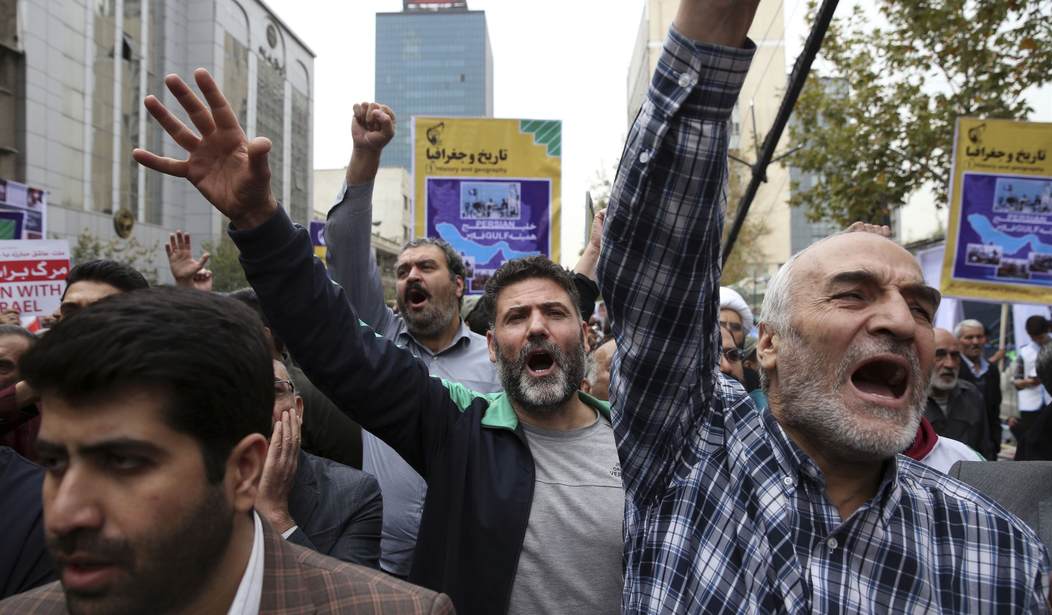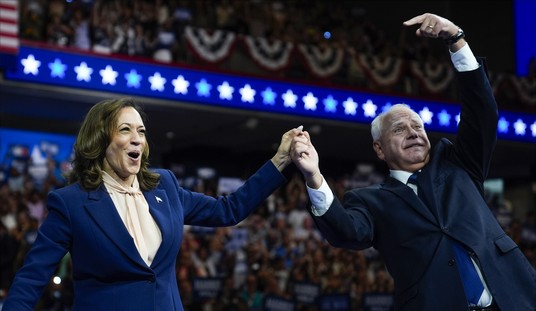Iran’s state-run TV network reports that Tehran had negotiated an agreement with the U.S. and Great Britain to release hostages in exchange for unfreezing billions of dollars in Iranian assets.
“The Americans accepted to pay $7 billion and swap four Iranians who were active in bypassing sanctions for four American spies who have served part of their sentences,” state TV said.
A state department spokesman, Ned Price, immediately shot down the report.
“Reports that a prisoner swap deal has been reached are not true,” Price said. “As we have said, we always raise the cases of Americans detained or missing in Iran. We will not stop until we are able to reunite them with their families.”
This report is entirely believable given the history of hostage negotiations with Iran. When the Iran nuclear deal was negotiated during the Obama administration, Tehran publicly agreed to release several Americans in exchange for lifting some sanctions. Later we learned, Obama had sweetened the deal by unfreezing 400 million dollars in Iranian assets.
Price did not elaborate. But Biden’s chief of staff Ron Klain told CBS’ Face the Nation that “unfortunately that report is untrue. There is no agreement to release these four Americans.”
“We’re working very hard to get them released,” Klain said. “We raise this with Iran and our interlocutors all the time but so far there’s no agreement.”
Tehran holds four known Americans now in prison. They include Baquer and Siamak Namazi, environmentalist Morad Tahbaz and Iranian-American businessman Emad Shargi.
AP tried to downplay the announcement by pointing to a “power struggle” between hardliners and moderates in the Iranian leadership.
The announcement by state television, relying on an unnamed source, comes amid a wider power struggle between hard-liners and the relatively moderate government of Iranian President Hassan Rouhani. That conflict only has grown sharper as Iran approaches its June 18 presidential election.
The broadcaster long controlled by hard-liners has aired similarly anonymously sourced reports contradicting diplomats in Vienna trying to negotiate a return to its nuclear deal with world powers.
There’s been a power struggle between supposed Iranian “moderates” and “hardliners” since the U.S. embassy takeover in 1979. Every election since then in Iran has featured this “struggle” — as if it really mattered that the public face of Iran was moderate or hardline.
There is only one power in Iran — the Supreme Leader — and there have been only two of them; Ayatollah Ruhollah Khomeini who died in 1989, and the current Supreme Leader Ayatollah Ali Hosseini Khamenei. The Supreme Leader directly controls the Revolutionary Guard Corps, which is the primary economic, military, cultural, and political power in Iran. He also controls the Guardian Council that vets and chooses every candidate for parliament. The idea of a “power struggle” is bogus. The power in Iran is radical, Islamic fundamentalism, and has been since the 1979 revolution.
So it’s entirely possible that a deal had been struck but Iran prematurely jumped the gun in announcing it. Biden did not have time to lay the groundwork for the PR campaign that would have been necessary to sell the idea of paying off kidnappers with $7 billion. It may also have been Khamenei trying to embarrass Biden by announcing a deal that was close, but not quite finished.
This is not the best way to deal with pirates and brigands. Thomas Jefferson sent the U.S. Navy after the last bunch of pirates that kidnapped Americans for ransom. Instead of paying the Iranians, perhaps a very small demonstration of our naval power — sinking the Iranian fleet perhaps — would convince the Iranians to release the Americans without us paying a king’s ransom.










Join the conversation as a VIP Member